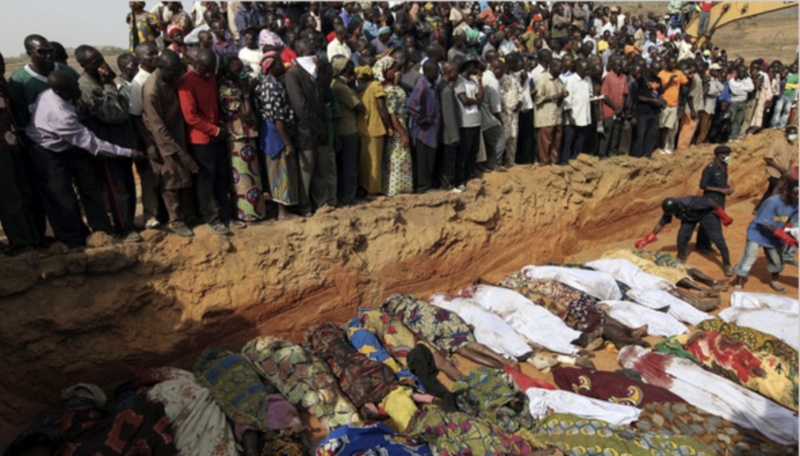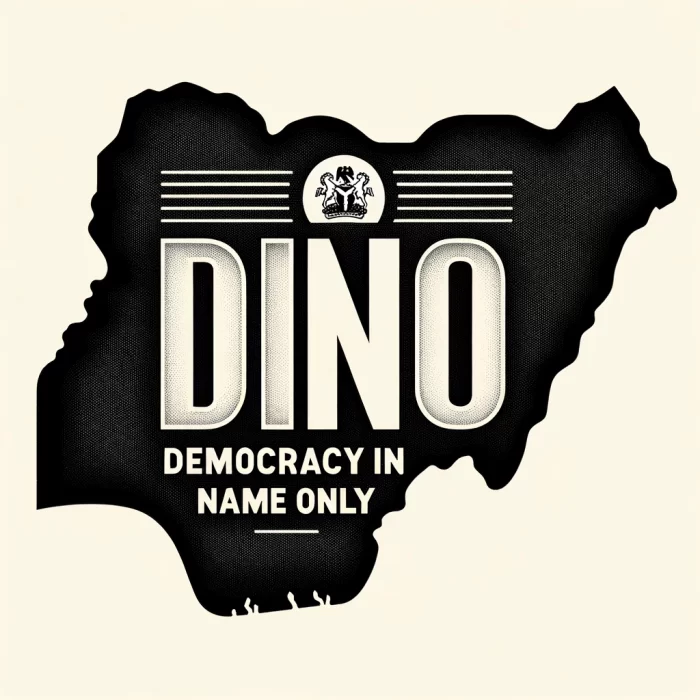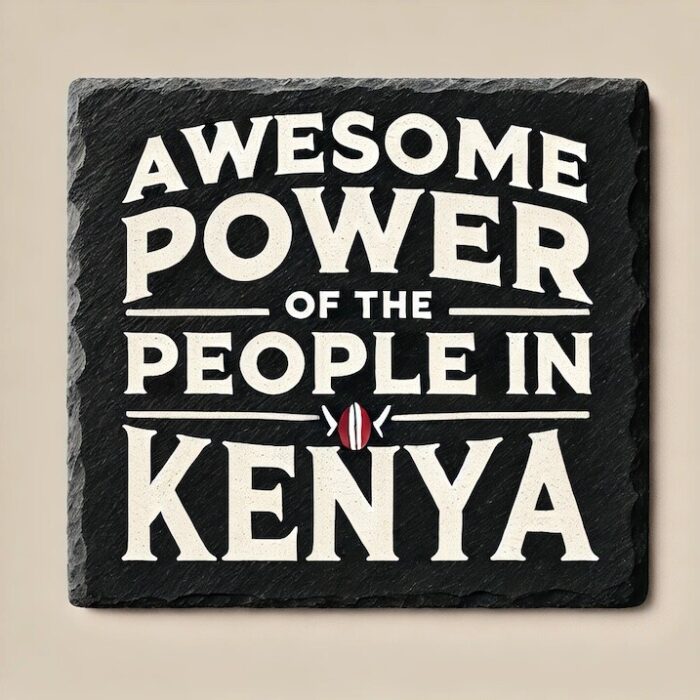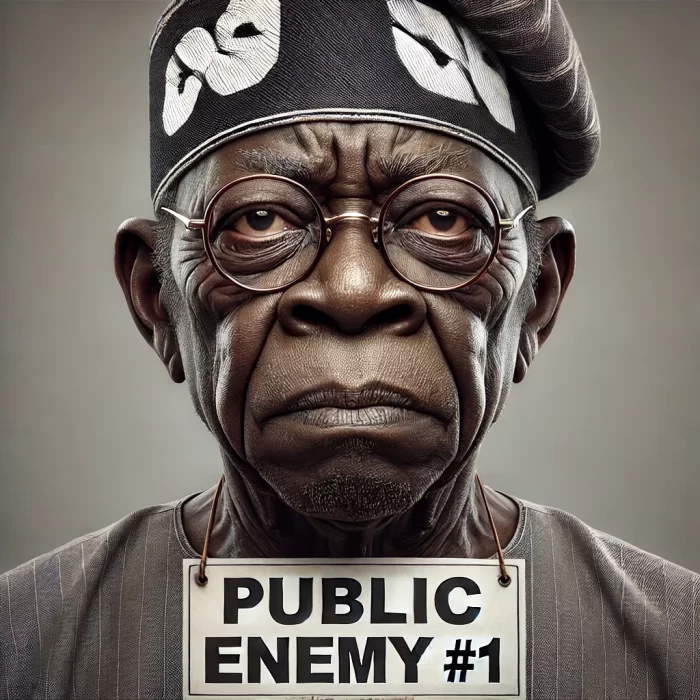By The Editorial Board
In political upheaval and social disorder, fate favors those who are prepared.
In this early warning article, we do three things. First, we promote the idea that Nigerians should vote for the best qualified candidate who will solve the most pressing problems and alleviate poverty and mass suffering in the nation.
Second, and more important, we caution Nigerians to be prepared to keep themselves and their loved ones safe during and after the presidential election. We focus more on this.
Third, given the high threat level we have identified, we provide concrete steps law-abiding citizens should take to keep themselves and their loved ones safe.
We are not alarmists. The dangers citizens face in this election cycle are real and present. Our threat meter is flashing red – maximum threat level that doesn’t bode well for unprepared citizens.
Threat Indicators Are Flashing Danger
Nigeria is facing, perhaps it’s biggest test in decades. A cohort of interconnected threat factors cast a dark shadow on Nigeria’s immediate future.
Our Predictive Analytics experts developed models and gathered data to simulate threat-consequence series in this election cycle, and the outcome concerns us deeply. It should concern you.
This year’s election occurs in the context of a sharply divided nation filled with hurting people who are angry and are fed up with the status quo. But the political elites who are the sole beneficiaries of the status quo resist change and are willing to use their buying power to purchase the election for a status quo-ish candidate. Therein lies a potential source of conflict between the suffering masses and the elite minority.
National schism along party, ethnic, religious and regional lines is widening every day. Political animosity is widespread. People are on the edge. The country, therefore, is facing the worst of times, especially now that the Buhari government and the ruling APC party have lost legitimacy and the majority of ordinary Nigerians have lost confidence in the party.
Our predictive model is showing signs of greater political instability and potential for political violence and social disorder, if sweeping measures are not implemented before the election to ensure voting goes mostly smoothly and the election is fraud-free.
The flashing danger signals from our predictive model offer a harbinger of the violent political unrest and social disorder likely to come, no matter who “wins” the presidential election next month.
Our team of threat identification and analysis experts have developed a list of the most relevant threat indicators that should keep Nigerians awake.
These threat factors converge and highly predict the likelihood of political crisis and social disorder. We identify these factors in the hope that candidates, political parties, INEC and the government can implement measures to mitigate crisis risks and consequences.
Major Qualitative Threat Indicators
Heightened Islamophobia
The political risk plot thickened considerably when the ruling APC party forced an extraordinary Muslim-Muslim ticket on the nation. Since then, the rise of islamophobia, real or imagined, has gripped non-Muslim Nigerians.
There are many Nigerian conspiracists who believe that a looming Muslim-Christian war is upon us and likely will be triggered by real or perceived malfeasance in this election.
Feverish Messiah Syndrome
When a long-suffering people are at their most vulnerable, they are desperate for a messianic solution. If the expected messiah doesn’t come to their rescue, the people despair and, inevitably, resentment and revenge take over.
Millions of desperate Nigerians tend to see Peter Obi as the messiah they’ve been waiting for all their lifetime. To them, the election is a crowning moment for the messiah.
In this state of mind, any outcome in which Mr. Obi doesn’t wear the presidential crown of glory is unacceptable. The only alternative left thereafter is vengeance.
Increased Religious Opportunism
As the presidential election unfolds, the intense religious atmosphere in the country is likely to contribute to the spread of rumors of martyrdom and crusade-like defiance in the name of Allah or God if the election outcome is contrary to prevailing religious convictions of who Allah or God willed the presidency.
If Peter Obi wins, it vindicates Muslim community contention that Muslims would be unsafe under an Igbo president. Especially, if Tinubu wins, it will vindicate those who feared a hidden agenda in the Muslim-Muslim ticket and claim of Islamization and Christian cleansing. If Atiku wins, all hell will break loose.
Intensified Insurgency Activism
Insurgency thrives in time of political uncertainty and social discontent. Often insurgents are themselves the arsonists who light the fire of social disorder.
Reliable intelligence has picked up communication and social media chatters indicating high activity levels by supporters of radical Boko Haram and other insurgent militia groups who may want to exploit any election irregularities to cause mayhem.
Elevated Separatists Politicking
Separatist movements agitating for Arewa Republic, Oduduwa Republic, Biafra Republic, Niger Delta Republic, and other shades of separatist movements, may take advantage of this election to instigate a crisis of confidence in the government and attempt to usurp power in the power vacuum that may arise in a post-election crisis situation in some parts of the country where separatists have strong bases and where the government appears weak.
Dangerous Political Blackmailing
The depth and breadth of political acrimony between the three main parties, and the political polarization across the country has set up a perfect storm ahead of a looming political crisis. In more than any previous election, candidates and political parties have weaponized personal character assassination to mobilize citizens against their opponents.
But as these attacks have taken on a whole new level of vitriol and grown more intense, personal and conspiratorial, it has spilled over into the general public and magnified on social media. Everyone is up in arms with gasoline and only waiting for someone or something to spark the fire.
Deep Ideological And Ethnoreligious Divide
This toxic political atmosphere reflects a deep ideological and ethnoreligious divide within the Nigerian public which manifests itself not only in insane public discourses and demagoguery rants online, but also in everyday social interaction. Indeed, this schism is growing and makes it harder to be good neighbors and good citizens.
Stolen Election Paranoia and Youth Agitation
For the first time, we have millions of young people mobilized to make their voices heard with their PVC in the ballot boxes. Most are first time voters. They are frustrated with the direction the country has been on during the eight years of the Buhari administration. And they are extremely angry.
Analysis of social media content provides evidence that their anger is boiling over. They are ready to flood the streets in all states at the same time – overwhelming security forces.
Our threat detection and analysis confirms that high unemployment, especially among the youth fosters feelings of anger, resentment and restlessness, a lack of purpose or worth, and many other negative emotions, which could easily spillover into riots and social disorder if the election outcome confirms their worst fears that their conditions will not improve.
Election fraud is the biggest crisis-triggering factor in our threat analysis. The history of elections in Nigeria are never free of corruption and claims of vote rigging and outright vote count buying and ballot box stuffing. Not this time. This time must be different.
The nation is at the precipice of ruin and any indication of fraud in this election is a recipe for disaster. The independence of INEC is paramount. It must operate flawlessly if the nation is to avoid social disorder of the scale never before seen in the country.
Heightened Anti-APC And Anti-PDP Revolt
The majority of the youth on social media and those we interviewed are publicly anti-APC and anti-PDP. An analysis of their social media comments forewarns of trouble ahead. Any appearance of election fraud commonly associated with both parties is certain to trigger social disorder. If the anti-APC and Anti-PDP masses have any reason to believe that the election was stolen, Nigeria is in trouble.
Combustive Mixture of Religion and Politics
The stakes in this election might be even higher because of the volatile mixture of politics and religion by some of the political parties and their candidates.
As we know, two candidates have framed their electability as the will of Allah. Mr. Bola Tinubu strongly believes it is his turn to be president, and his camp has publicly stated that Allah has anointed him president and that he’s Allah’s chosen one.
Mr. Atiku Abubakar’s camp also claims that Allah is on his side and ordained him to be president, and will vanquish his political opponents and deliver victory to him. And when Allah’s will is done, he will match triumphantly into Aso Rock.
By implication, Tinubu and Atiku are saying that if Allah’s will is not fully fulfilled on election day, there will be a holy war. Many on social media take their prophesy seriously. And this is insanely dangerous.
Sadly, what the APC and PDP candidates have formulated is a potential clash between religion and politics. What happens when either of the two self-proclaimed God’s “chosen ones” are not chosen by the people? What if God doesn’t vote for either Tinubu or Atiku?
Nigerian history informs us that mixing political rhetoric with religious chosenness is dangerous. When religion and politics come together, the outcome too often is violence and polarization that potentially can lead to religious hostilities, ethnic purging, church burning, mosque burning, and lost lives.
Media frenzy
The above threat indicators tie in with themes of misinformation, disinformation and sensationalism spewed on print media, TV and social media. The media has gone crazy with incendiary content consumed daily by people who are already angry and on the edge. The next step is stirring up post-election untruths to feed the anger and ignite the fire of social disorder.
Foreign Travel Restrictions
Sensing potential political risks and civil conflict, the US embassy and other foreign governments have recently updated their travel advisory to Nigeria. Significant parts of the country remain a “do not travel area” while travelers in general are advised to reconsider traveling to the country. The US warns that the threat of civil unrest has heightened as the presidential election draws near.
Airline Reservation Analysis
Analysis of airline booking capacity in the days during and immediately post-election seem to indicate an unusual seasonal trend. Seats are either sold out or are in limited supply. Two factor may contribute to this scarcity. Either airlines are rationally limiting flights into the country or Nigerian elites have over booked flights out of the country as a risk mitigation measure should political crisis and social disorder arise from the election.
What You Must Do Today To Protect Yourself And Your Loved Ones
Our threat meter is flashing hot red. Yet too many Nigerians are indulging complacency and ignoring every alarm about what lies in front of them in this highly risky election cycle. Nigerians had better wake up soon before it’s too late.
As usual, politicians and their families have exit plans should things go crazy. They are protected and have the resource to exit the country in private jets, leaving ordinary citizens to kill each other.
There are many survival preparedness items that you can store now, to be used later, or to be carried with you for preparedness sake, should there be social upheaval following the presidential election.
The following are suggested items that you can store and have ready to take care of yourself and your loved ones.
Before you determine what you need in your survival plan and kit, you should answer the following questions:
- Where will you likely be when disorder happens? At home? At work? In your vehicle? Walking in a public place? Traveling on a business trip or vacation?
- Where will your family be when this happens? At home? At work? At school? In a public place?
- How many people are in your household?
- How long might the social upheaval last? One day? One week? One month? Many months?
- Will you be traveling to a safer location inside the country or stay put where you are?
- Is your residence located in a secure area and has private security?
- Do you have firearms for self-protection?
- What’s the scope of social upheaval anticipated?
- Restricted to one area of the city? City-wide? State-wide? Nationwide?
Now with answers to the above questions, you can develop a plan to keep yourself and loved ones safe.
Develop a plan In fact, taking time to prepare now can help keep your family safe and give you peace of mind if and when post-election conflict occurs. Your family may not be together when disaster strikes, so it’s important to know how you’ll reconnect if separated. You may have children in different schools and some in the university in different cities. So, create a simple communications plan so that you can reach everyone quickly in case of a crisis. Contact each school or university where your children are and find out their safety and emergency protocols and what you as a parent can do in a crisis.
Plan your evacuation route. If you have no choice but to evacuate, you need to know exactly where to meet your loved ones and which way you’re going to take out of town.
- Get several maps and mark the routes that are least likely to be crowded or dangerous.
- Agree on where members of your household will go if told to evacuate their locations (e.g., schools or place of work).
- If the airport is still operational, catch the first flights out, if you can afford it. You should book a refundable one way ticket and if not needed, get your refund.
- If you must evacuate to your state, for example from Abuja to Imo state, coordinate with other families near your area in Abuja so you can travel together in a convoy of many cars.
- If you plan to travel to another location, e.g., your village, make sure you have what you need to survive there.
- If you must drive to a safe location, get information on local conditions when traveling. It’s always wise to keep an eye on your destination to know in advance what awaits you. Be careful of roadblocks in remote areas. You have to pay attention to what happens to cars in front of you, and cars heading in the opposite direction.
Build survival supply.
- Start with important household items, like a flashlight, extra batteries, candles, water, toilet papers, and non-perishable, dry and canned food.
- Start with a level of preparedness that will hold you and your loved ones over for 30 days.
- Buy extra cooking gas tanks.
- Fill up all cars with gasoline at all times. If you buy and store extra gasoline, you must be very careful to avoid accidental fire hazard.
- Refill all prescription drugs for every member of your family.
- Buy some standard first aid medicines and supplies for wound treatment.
- Keep a 72-hour survival kit in your vehicle.
- Buy a few clothes that will blend in and have a change of these clothes in your vehicle as required.
Gather key documents in one place
- Having access to personal financial, property, insurance, medical and other records is crucial for making a quick exit if required and for starting the recovery process quickly and efficiently.
- Store important documents either in a safety deposit box, an external drive or on the cloud to make it easy to access during a crisis.
Cash is king
- Withdraw enough cash from the bank to sustain your family for 30 to 60 days and put in a safe place. It is important to have cash on hand because ATMs and credit cards may not work during a crisis when you need to purchase necessary supplies, fuel or food.
Build trust with your neighbors
- Know your neighbors. Your neighbors of different ethnicities or religions can actually help protect you if you have a trusting relationship with them.
- Get their contact information.
Avoid complacency and these common mental biases
- Avoid “it can’t happen here.”
- Avoid “my co-workers are good people and won’t harm me.”
- Avoid “it will be over soon.”
- Avoid “the government will protect us.”
- Avoid “our area of town is safe; it’s only happening in the bad areas.”
- Avoid “it will blow by soon.”
Do a dry run of your plan
Conduct a drill regularly to evaluate your plan. The more you do this, the less likely you and your family will panic when there’s a real crisis. Chances of survival is better if everyone knows exactly what to do.
In sum, We are prayerful that the election will be peaceful, smooth, and fraud-free. May Nigerians vote for the man who has the character, morals, vision, pragmatism, compassion and innovation to solve problems and deliver much needed benefits to all Nigerians. In the meantime, we encourage you to start today to put an exit and survival plan together to ensure that you and your loved ones are safe.
Read our previous piece for more insight. Read our previous article on 2023 presidential election threats.





